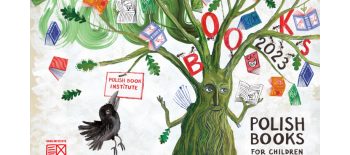Invisible People of Belarus by Jadwiga Brontē is a photobook accompanied by critical reflections and testimonies which documents the lives of disabled people and Chernobyl victims living in governmental institutions in Belarus. These institutions are known as internats and function as something between an orphanage, asylum, and hospice. Internats often exhibit glaring deficiencies in terms of how they care for their residents: very little physical or educational therapy is offered; there are few opportunities for recreational activities; and the right to a private life is not respected, with romantic relationships between residents prohibited. Integration within the local community is virtually non-existent. Their location makes it difficult for the families that would like to stay in touch with their children to visit. Some are located in very rural areas and with almost no public transport links. All internats are either fenced off or walled. This separation stands as a metaphor for the way disability is thought about in Belarus: misunderstood and better shut away.
Through her use of intimate imagery, born through extended periods spent in internats, Brontē allows the reader to see ways of life that are often hidden. Her 30 images, comprising portraiture, architectural photography, and documentation of residents’ creative work, are book-ended by two sections of writing.
In the first section, Brontē reflects on her reasons for choosing to focus on the lives of internat residents and dwells on her personal attachments to the project. Next, an anonymous NGO worker with decades of experience working in internats examines the institutional, governmental, and cultural contexts that allow for their existence. Finally, an essay by writer Michael Thomason asks after the potential of Bronte’s work to contribute towards creating a more equitable place for difference; one not confined behind fences. With kind permission from Nobel prize winning author Svetlana Alexievich, testimony from Chernobyl survivors is reproduced throughout the essay to ask what we might learn from a community of people similarly abandoned by the state.
After the photographs, testimonies from the mothers of people residing in internats allow the reader to explore the difficult decisions parents make – often under duress – to give their children away. Also included are testimonies from two internat residents who reflect on their lives there, and the director of the Institute of Radiation Safety in Belarus.
The book is bilingual in English and Russian.
The book is hard covered with classic black fabric and the title is hot stamped with vinyl finishing. The English title is on the front-cover and the Russian on the back.
200 copies of the 500 are being send to art universities in some of the post-soviet countries.
20x24cm, 128 pages.
Offset lithograph printed 3 different papers.
Brontē designed the end paper using an original Belarusian ornaments, creating a textile like pattern with a new meaning relating to the book. Drawings are by artist Ania Pawlik.
Limited 1st edition of 500 copies
Buy online
Read a WWII Paratrooper’s Memoir 🗓
Polish books available for loan as part
Premiere of the catalogue “Polish Books for
As is tradition, along with the inauguration of the Bologna Children's Book Fair, the Book Institute's catalogue "Polish Books for Children & Young Adults" premieres, presenting excellent Polish books for young audiences that were published last year.



